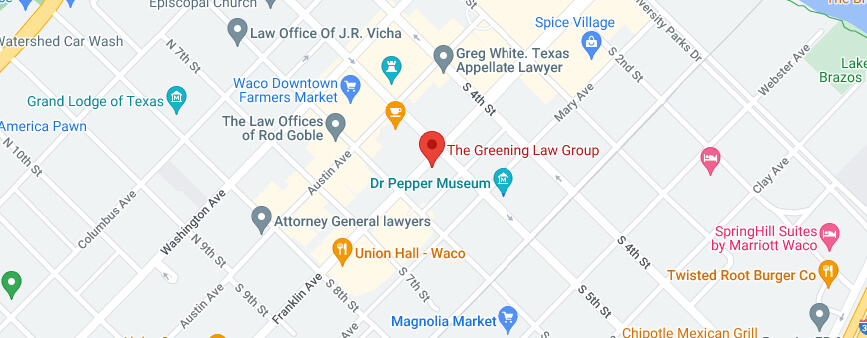What Can You Do if You Are Charged With Theft in Texas?
The State of Texas takes theft crimes very seriously. The Texas Penal Code states that an individual commits theft when he or she “unlawfully appropriates property with intent to deprive the owner of property.” Theft charges can range from a Class C misdemeanor for the theft of items valued at less than $100, all the way to felony charges that could result in years of prison time and massive fines. In addition to criminal consequences, having a theft conviction on your record may impact your ability to find employment in certain professions, receive government assistance for housing and college, and own a firearm.
Mounting a solid defense against theft charges can be vital to the success of your case and your future. A knowledgeable Texas criminal defense lawyer can explain some of the common defenses to theft charges and when they may be used. However, the best defense will depend on your unique circumstances. Contact a skilled criminal defense law firm as soon as possible for a legal strategy tailored to your specific situation.
What Are Commonly Used Defenses in Texas Theft Cases?
When most people think of theft, they think of someone stealing physical property. However, there are many different varieties of theft. For example, intangible intellectual property or services can be stolen. Or an individual can be charged with theft if they knowingly take possession of property that someone else stole.

The variations in theft charges mean that each case is different and will require a distinct legal strategy to fight against prosecution. Some defenses a knowledgeable lawyer may use in your case include the following.
Lack of Intent
In every theft case, the prosecution must show that there was the intent by the defendant to permanently deprive an individual of their property. The charges should be dismissed if your legal team can prove this intent did not exist. Situations that look like theft on the surface can often be traced back to a miscommunication or confusion between parties. If a defendant believed in good faith that they had permission to possess the property or were borrowing it with consent, they may be able to provide evidence of a lack of intent.
Duress
In certain situations, a person may find themselves forced to commit a crime such as theft because others are threatening to harm them or their loved ones if they do not cooperate. Sometimes juveniles or other vulnerable members of society are forced into these circumstances by local gangs.
Failure to Realize the Item Was in Your Possession
Sometimes honest mistakes can happen. An item may fall into your purse in the store, or you may forget to return a borrowed object. If you genuinely did not know you had the article, then you did not possess the intent to steal it. Without intent, the action or omission is not considered theft.
Rightful Ownership of the Property
If you are accused of stealing property, but you can provide evidence that you are the rightful owner, it can be a very effective defense. For example, if someone sold you their vehicle and then accused you of stealing it when you picked it up, you could present the bill of sale or the transferred title as proof of ownership.
Illegal Search and Seizure by the Police
The Fourth Amendment protects US citizens from illegal searches and seizures by law enforcement. The police cannot get a warrant to search your home or belongings without probable cause.

Generally, this means officers must demonstrate that they have a reason to believe you committed a crime before a judge will grant them a search warrant. If the police did not go through the proper procedures, evidence they illegally obtained may be excluded, or the entire case could be dismissed.
Other Defenses
A theft charge can carry life-altering consequences if you are convicted, including jail or prison time, probation, or fines. Certain circumstances automatically increase the category of the offense, such as stealing from an elderly individual or a nonprofit organization. Some defenses will not result in the theft case’s dismissal but may reduce the charges or punishment for the crime.
Return of the Property
If an individual accused of theft attempted to return the property, they will still likely be charged for depriving the rightful owner of their belongings for a time. However, a criminal defense attorney could make the case that the act of returning the property shows remorse, and it may result in a more lenient sentence from the judge. Every case is different, so it is essential to consult with a knowledgeable lawyer to learn more about your options.
Overestimation of the Property’s Value
Many elements can impact the severity of your theft charges, but the property’s value is one important factor. For example, a theft is a Class A misdemeanor in Texas if the stolen property is worth $750 or more but less than $2500.

If the property’s value is exaggerated, it could lead to a more serious charge with greater penalties. If your lawyer can show that the items stolen were worth much less than the owner claims, the charges and penalties may be significantly reduced.
How Can an Experienced Defense Lawyer Help?
Independently defending yourself against criminal charges such as theft can be challenging, and the stakes couldn’t be higher. A knowledgeable criminal defense lawyer can use their years of experience with the legal system to evaluate your case and determine the best possible defense for your situation. To learn more about how we can help you protect your rights, contact The Greening Law Group today at 979-779-2000.











